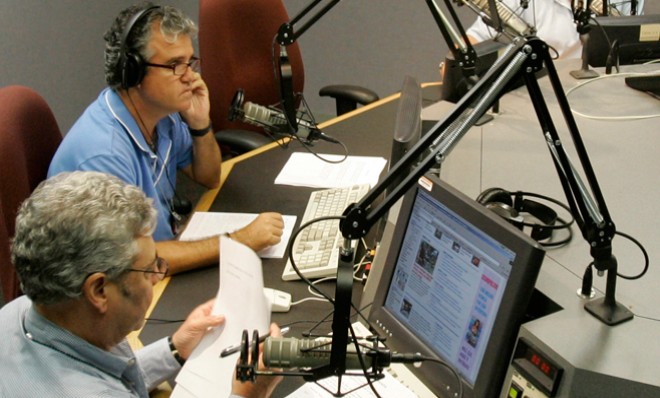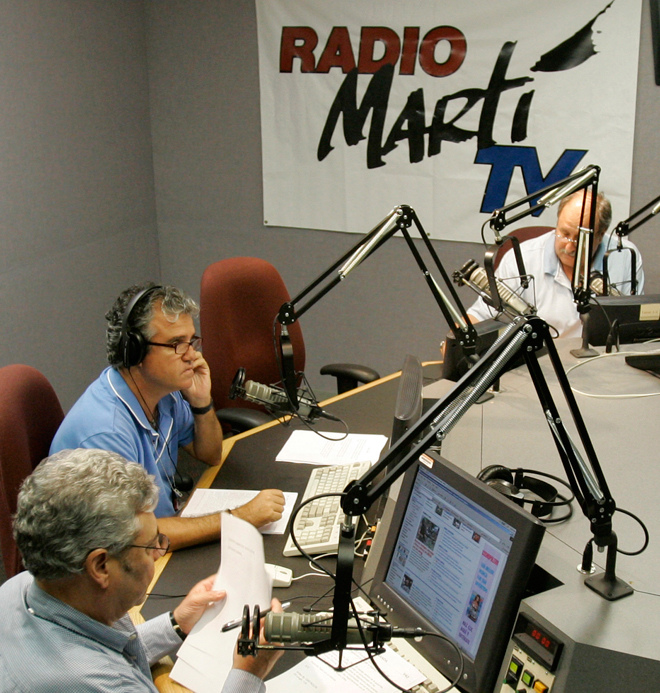Why the U.S.'s Cuban propaganda plane is a complete waste of money
The U.S. has spent $24 million beaming anti-Castro programming from the plane. Too bad the government blocks the signal.

A free daily email with the biggest news stories of the day – and the best features from TheWeek.com
You are now subscribed
Your newsletter sign-up was successful

For the past seven years, the United States has been funding a twin-engine plane that flies circle-eights over Cuba, broadcasting everything from baseball games to interviews with anti-Castro dissidents.
Despite its cost to the U.S. government — more than $24 million total since 2006, according to Foreign Policy — very few people on the ground can receive the broadcast, due to the fact that its signal is blocked by the Cuban government.
The program, named AeroMarti, has also relied on a C-130 military plane and blimp on a cable floating above the Florida Keys to broadcast its message. It's part of a larger Marti initiative, which has cost nearly half a billion dollars since 1985, that aims to provide an alternative to Cuban state media through television, radio, and the internet.
The Week
Escape your echo chamber. Get the facts behind the news, plus analysis from multiple perspectives.

Sign up for The Week's Free Newsletters
From our morning news briefing to a weekly Good News Newsletter, get the best of The Week delivered directly to your inbox.
From our morning news briefing to a weekly Good News Newsletter, get the best of The Week delivered directly to your inbox.
While the broader program is somewhat popular, even the U.S. Broadcasting Board of Governors, which is responsible for AeroMarti, has asked Congress to stop funding the plane, noting that its "signal is heavily jammed by the Cuban government, significantly limiting this platform's reach and impact on the island."
"Even if the propaganda plane reached its audience, there's little evidence the Cuban people are going to spend their leisure time watching Cuban exiles snarl about Castro," John Nichols, a communications professor at Penn State University, told Foreign Policy.
Cubans have had little exposure to Americans over the last 54 years, due to an embargo on travel into Cuba created when Fidel Castro first took power.
In 2009, President Obama loosened travel restrictions to allow Cuban-Americans to make unlimited trips to the island, and later opened up the country to educational and religious tours in the name of increasing "people-to-people contact" and enhancing the "free flow of information to, from, and among the Cuban people."
A free daily email with the biggest news stories of the day – and the best features from TheWeek.com
Some of the same lawmakers who opposed Obama's actions in 2009, including Sen. Robert Menendez (D-N.J.), have also kept the AeroMarti program alive, a testament to the sway of hardcore anti-Castro members of Congress.
However, the sequester — across-the-board spending cuts that went into effect in spring — might be the thing that finally kills it. The plane is currently grounded in Georgia thanks to sequester cuts. Sen. Jeff Flake (R-Ariz.) would like to keep it that way, telling Foreign Policy, "It's hard to believe we are still wasting millions of taxpayer dollars on beaming a jammed TV signal — that fewer than 1 percent of Cubans can see — from an airplane to the island."
Keith Wagstaff is a staff writer at TheWeek.com covering politics and current events. He has previously written for such publications as TIME, Details, VICE, and the Village Voice.